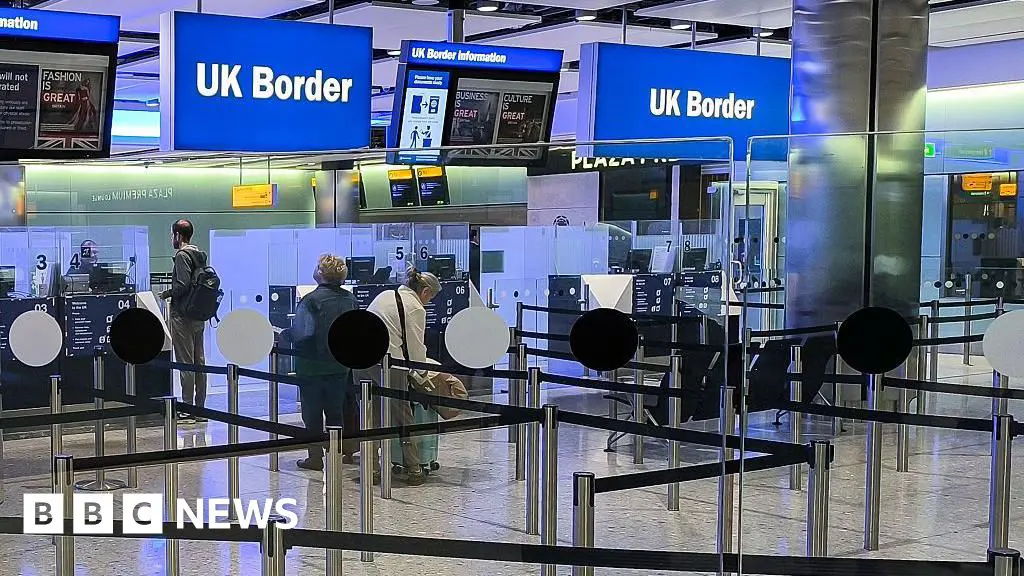
Recent policy announcements in the United Kingdom visa have indicated a significant shift in the path to permanent settlement for migrants already residing in the country. The government has revealed plans to double the standard qualifying period for Indefinite Leave to Remain (ILR), commonly known as permanent residency, from the current five years to ten years. This proposed change has sparked considerable discussion and concern among migrants, advocacy groups, and businesses across the UK.
Extension of the Qualifying Period: A Move from Five to Ten Years
The core of the proposed change lies in extending the period that migrants must legally reside in the UK before becoming eligible to apply for permanent settlement. Previously, individuals on various visa routes, such as the Skilled Worker visa, could apply for ILR after five years of continuous lawful residence. The new proposal seeks to extend this duration to ten years for most immigration routes.
This shift represents a notable departure from the previous framework, which was seen by many as a more accessible route to long-term security and integration into British society. The government's rationale behind this extension appears to be multifaceted, potentially driven by a desire to manage the increasing volume of immigration applications, exert greater control over immigration flows, and ensure a more extended period of contribution from migrants before they gain permanent status.
Application to Current Residents and Public Consultation
A key point of concern and discussion following the initial announcement was whether this extended ten-year qualifying period would apply retroactively to individuals already living and working in the UK. Recent reports suggest that the government intends for this new rule to apply to migrants who entered the UK since 2020 and are currently residing in the country. This move towards a more uniform policy framework, regardless of the arrival date, could significantly impact the long-term plans and sense of security for a substantial number of foreign nationals who have already established lives in the UK.
To formalize these changes, the government is expected to publish a detailed policy document outlining the provisions of the extended qualifying period. Furthermore, a public consultation period will be initiated to gather feedback from various stakeholders, including migrants themselves, advocacy organizations representing their interests, and businesses that rely on international talent. This consultation process will be crucial in addressing potential concerns, clarifying the intricacies of the implementation, and possibly leading to adjustments in the final policy based on the received feedback. The outcomes of this consultation will undoubtedly shape the future landscape of immigration and settlement in the UK.
Exceptions and Shorter Qualification Periods
Despite the general move towards a longer ten-year qualifying period for permanent settlement, the government has indicated that certain groups of migrants may still be eligible for shorter routes. For instance, non-UK dependents of British citizens are expected to continue qualifying for ILR after five years of residence.
Moreover, there is mention of potential "fast-track" settlement routes for individuals who can demonstrate significant contributions to the UK's economy and society. The specifics of how these contributions will be assessed are yet to be fully detailed, but this approach suggests a desire to retain highly skilled workers, entrepreneurs, and those in critical sectors who are deemed particularly valuable to the country's growth and social fabric. By offering these exceptions, the government aims to balance stricter overall immigration controls with the need to attract and retain talent that can drive economic and societal progress.
Impact on Migrants and the UK
The proposed extension of the permanent settlement waiting time is likely to have a wide range of impacts on migrants currently in the UK and those considering moving there in the future.
Increased Uncertainty and Anxiety
For migrants who have already spent several years in the UK with the expectation of applying for ILR after five years, this change could create significant uncertainty and anxiety. Individuals who have built their lives, careers, and families in the UK based on the existing rules may now face a prolonged period of temporary status. As one migrant expressed, this feels like a "betrayal" and could lead some to reconsider their long-term future in the UK.
Longer Periods Without Full Rights
Permanent settlement grants individuals the right to live, work, and study in the UK without immigration restrictions, as well as access to certain benefits. Extending the waiting period means that migrants will remain in a state of temporary residency for a longer duration, potentially facing continued visa application processes, fees, and limitations on their rights and access to support.
Potential Economic Consequences
Businesses in the UK, particularly those that rely on international workers, have also voiced concerns. Extending the settlement period could make the UK less attractive to global talent, potentially leading to difficulties in recruitment and retention. Some fear that highly skilled individuals might choose to move to countries with more favorable immigration policies, which could negatively impact the UK's competitiveness and innovation.
Increased Revenue for the Home Office
While the stated aims of the policy change focus on managing immigration, some analysts suggest that the extended waiting times could also lead to increased revenue for the Home Office through continued visa fees paid by migrants during the longer period before they can apply for ILR.
Broader Changes in UK Immigration Policy
The proposal to extend the permanent settlement waiting time is part of a broader set of changes to the UK's immigration policies. The government's "Restoring Control over the Immigration System" white paper outlines several key measures aimed at reducing net migration and tightening visa eligibility.
Skilled Worker Route Adjustments
The skill level required for sponsored roles under the Skilled Worker route is being raised back to RQF Level 6 (degree level), reversing a previous liberalization. Salary thresholds are also expected to rise, and the Immigration Salary List, which offered reduced thresholds for certain occupations, is being abolished. These changes aim to ensure that the Skilled Worker route is focused on genuinely high-skilled roles and to encourage investment in the domestic workforce.
Temporary Shortage List
A new Temporary Shortage List will be introduced to address labor shortages in specific sectors that require roles below RQF Level 6. This list will be time-limited and subject to review by the Migration Advisory Committee (MAC), with employers in these sectors potentially required to develop workforce strategies to justify overseas recruitment.
Social Care Visa Changes
The dedicated visa for social care workers, introduced previously, is being closed to new applications from abroad. While visa extensions and in-country switching will be permitted for those already in the UK until 2028, this move signals a shift towards prioritizing domestic recruitment for the care sector.
Student Visa Regulations
The length of the Graduate visa, which allows international students to stay and work in the UK after their studies, is being reduced from 24 months to 18 months. Additionally, there are considerations for a levy on higher education providers' income from international students. Measures to strengthen the requirements that universities must meet to sponsor international students are also being introduced.
Family Migration Adjustments
The government intends to tackle complex family and private life immigration arrangements by introducing a clearer framework. Changes to English language requirements for adult dependents of workers and students are also proposed, with increasing proficiency levels potentially required for visa extensions and settlement.
Focus on High-Growth Sectors
Conversely, there are positive proposals to attract "very high talent" to strategic industries and the UK economy. This includes increasing the number of visas under the Global Talent route and reviewing the Innovator Founder visa to support entrepreneurial talent from UK universities.
Processing Times for UK Visas
It's important to note that the processing times for various UK visas can fluctuate based on application volumes and policy changes. As of May 2025, the standard processing time for a Skilled Worker visa applied for from within the UK is around 8 weeks. Applications made from outside the UK typically have a processing time of 3 weeks.
Other visa categories have varying processing times:
- Standard Visitor Visa: 8 weeks for applications inside the UK, 3 weeks outside the UK.
- Student Visa: 8 weeks for applications inside the UK, 3 weeks outside the UK.
- Family Visas (Partner/Spouse): 8 weeks for applications inside the UK (meeting requirements), 12 weeks outside the UK.
The processing times provided are general estimates and can be influenced by the complexity of the case and the volume of applications being handled by UK Visas and Immigration (UKVI). Applicants can sometimes opt for priority services for an additional fee to expedite the decision-making process.
Conclusion: A More Extended Path to Permanent Settlement
The proposed extension of the permanent settlement waiting time for migrants in the UK marks a significant shift in the country's immigration landscape. This change, part of a broader effort to tighten immigration rules and reduce net migration, will likely have substantial implications for individuals who have made the UK their home and for those considering it as a future destination. While the government emphasizes the need for a more controlled and contribution-based system, concerns remain about the potential impact on migrants' well-being, the UK's attractiveness to global talent, and the overall social fabric of the nation. The upcoming public consultation will be a crucial opportunity for these concerns to be voiced and considered as the new policies are finalized and implemented.
;More Travel News
-
 19-Mar-2022PIA International Increased Flight Fares for Umrah
19-Mar-2022PIA International Increased Flight Fares for Umrah -
 08-Nov-2024Flying to Thailand What You Need to Know About the New Visa Rules
08-Nov-2024Flying to Thailand What You Need to Know About the New Visa Rules -
 01-Sep-2025A Complete Guide to the Gates of Masjid Nabawi with Nearby Hotels
01-Sep-2025A Complete Guide to the Gates of Masjid Nabawi with Nearby Hotels -
 16-Mar-2023China to start visa processing for tourists. Apply Now
16-Mar-2023China to start visa processing for tourists. Apply Now -
 09-Jan-2026Saudi Arabia Announces Final Dates for Umrah Visa 2026
09-Jan-2026Saudi Arabia Announces Final Dates for Umrah Visa 2026 -
 23-Sep-2020Umrah Pilgrimage To Be Resumed By Saudi Government From Oct 4, 2020
23-Sep-2020Umrah Pilgrimage To Be Resumed By Saudi Government From Oct 4, 2020 -
 19-Feb-2025Punjab Government Plans Glass Train from Islamabad to Murree: A Scenic Journey Awaits
19-Feb-2025Punjab Government Plans Glass Train from Islamabad to Murree: A Scenic Journey Awaits -
 22-Mar-2022400,000 Umrah Pilgrims Welcomed by Saudi Arabia in Ramadan
22-Mar-2022400,000 Umrah Pilgrims Welcomed by Saudi Arabia in Ramadan -
 29-May-2024Schengen Visa Fee To Increase from June 11
29-May-2024Schengen Visa Fee To Increase from June 11 -
 25-Jul-2019Traveling Leaves You Speechless Then Turns You Into A Storyteller
25-Jul-2019Traveling Leaves You Speechless Then Turns You Into A Storyteller -
 15-Sep-2025Why the Face Remains Uncovered When a Pilgrim Dies in Ihram
15-Sep-2025Why the Face Remains Uncovered When a Pilgrim Dies in Ihram -
 26-Dec-2024Hiring of Services for Moavineen/ Nazims for Hajj 2025 Announced
26-Dec-2024Hiring of Services for Moavineen/ Nazims for Hajj 2025 Announced
